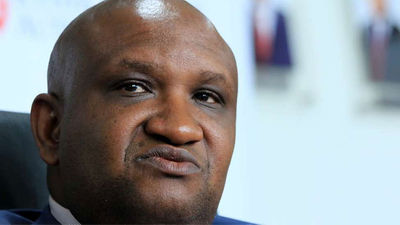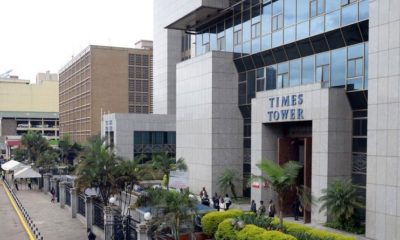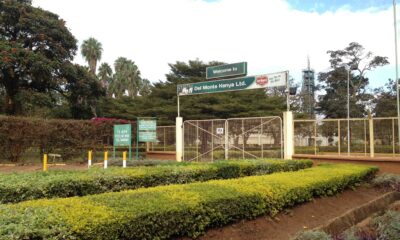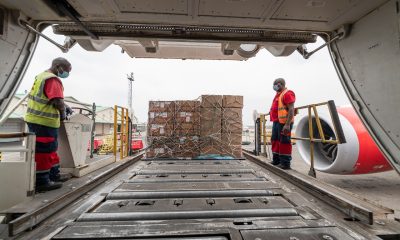News
KRA Is Now Keeping An Eye On Kenyans Displaying Lavish Lifestyle On Social Media To Nab Tax Cheats

The taxman is training its guns on rich Kenyans displaying lavish lifestyles on social media but paying little or no taxes.
The Kenya Revenue Authority (KRA) Commissioner-General Githii Mburu said his officers are now spending time on social media, trolling Kenyans posting photos of luxurious cars, throwing expensive parties, living lavishly to ensure their taxes are in tandem with their image.
In a move that is set to strike at the heart of the ‘soft life’ generation, socialites and a growing number of Kenyans who are splashing their lives on social media, the KRA says it is time for every Kenyan to pay their fair share of taxes.
The tax cheats risk travel bans, collection of duty directly from their suppliers and bankers and prosecution in what is emerging to be the biggest crackdown yet on high-net-worth individuals.
The KRA is racing to bring more people into the tax bracket and curb tax cheating and evasion in the quest to meet targets.
The taxman has a team focused on smoking out tax cheats through sites such as Facebook, Instagram and Snapchat.
“In the social media, we have some people posting some nice things. You would see some posting nice houses, cars, taking their families to nice places and so on. Here, we are not sleeping, when we see those, we see taxes,” Mr Mburu said in an interview with the Business Daily.
The KRA chief said seeing a fuel guzzler zoom past him, he asks himself if that man or woman behind the wheels has paid taxes.
“We have our officers looking, they have gadgets. They key in very quickly (the number plate) to check. We are working exceptionally hard,” he said.
He said this could explain in part the reason for his success, having exceeded his tax collections target for this year by Sh27 billion.
The clampdown on the rich is part of the commitment that Kenya made to the International Monetary Fund (IMF) to recover unpaid taxes from high-net worth professionals and traders in efforts to raise the national revenues.
The KRA is flagging wealthy individuals that have been hiding their sources of income while engaging in luxury spending and accumulation of property, including purchase of homes and big cars.
Besides scouring social media sites, the Authority has been using various databases to pursue suspected tax cheats, among them bank statements, import records, motor vehicle registration details, Kenya Power records, water bills and data from the Kenya Civil Aviation Authority (KCCA), which reveal individuals who own assets such as helicopters.
Mr Mburu says a huge chunk of Kenyans building houses are not paying taxes on claims the properties are products of bank loans.
“We know you can build a house from loans. But that loan must be repaid from somewhere. We are following all those applying for meters”.
The KRA is also linked to the government’s e-procurement system or the Integrated Financial Management Information System (IFMIS), making it easier to pursue suppliers earning billions of shillings from counties and State tenders without paying their share of taxes.
“We have access to IFMIS and we want to see anyone being paid by government; is he or that business paying taxes? We are also able to work with other third parties like Kenya Power,” Mr Mburu said.
Kenya Power meter registrations are helping the taxman to identify landlords, some of who have been slapped with huge tax demands.
Car registration details are also being used to smoke out individuals who have little to show in terms of taxes remitted.
The aggression has seen the taxman run ahead of its targets for the first time in over a decade. In its latest tax performance update released last week, the KRA said it collected Sh154.3 billion in October 2021 against a target of Sh142.2 billion.
Mr Mburu said his agency started the new financial year on an upward trajectory after surpassing its July-September 2021 target of Sh461.6 billion by Sh15 billion, representing a 30 percent growth.
Cumulatively, the KRA collected Sh631 billion between July and October 2021 against a target of Sh603.9 billion, translating to a performance rate of 104.5 percent, a growth of 28.3 percent and a surplus of Sh27 billion.
Mr Mburu said the improved performance is anchored in implementation of key strategies, among them tax base expansion that focuses on bringing citizens and business previously not paying taxes.
Other strategies include enhanced compliance efforts addressing tax evasion and illicit trade as well as extensive use of data and intelligence to unearth unpaid taxes.
Mr Mburu noted that Kenya’s tax to Gross Domestic Product ratio stands at 13.8 percent, indicating the need to continue enhancing tax collection and reducing tax expenditure in the form of exemptions and incentives to achieve the desired rate of more than 20 percent.
Kenya Insights allows guest blogging, if you want to be published on Kenya’s most authoritative and accurate blog, have an expose, news TIPS, story angles, human interest stories, drop us an email on [email protected] or via Telegram
-

 Grapevine4 days ago
Grapevine4 days agoAlleged Male Lover Claims His Life Is in Danger, Leaks Screenshots and Private Videos Linking SportPesa CEO Ronald Karauri
-

 Lifestyle7 days ago
Lifestyle7 days agoThe General’s Fall: From Barracks To Bankruptcy As Illness Ravages Karangi’s Memory And Empire
-

 Americas2 weeks ago
Americas2 weeks agoEpstein Files: Bill Clinton and George Bush Accused Of Raping A Boy In A Yacht Of ‘Ritualistic Sacrifice’
-

 Business2 weeks ago
Business2 weeks agoCooking Fuel Firm Koko Collapses After Govt Blocks Sh23bn Carbon Deal
-

 Business2 weeks ago
Business2 weeks agoABSA BANK IN CRISIS: How Internal Rot and Client Betrayals Have Exposed Kenya’s Banking Giant
-

 Investigations1 week ago
Investigations1 week agoEpstein Files: Sultan bin Sulayem Bragged on His Closeness to President Uhuru Then His Firm DP World Controversially Won Port Construction in Kenya, Tanzania
-

 News2 weeks ago
News2 weeks agoAUDIT EXPOSES INEQUALITY IN STAREHE SCHOOLS: PARENTS BLED DRY AS FEES HIT Sh300,000 AGAINST Sh67,244 CAP
-

 Business1 week ago
Business1 week agoKRA Can Now Tax Unexplained Bank Deposits

























